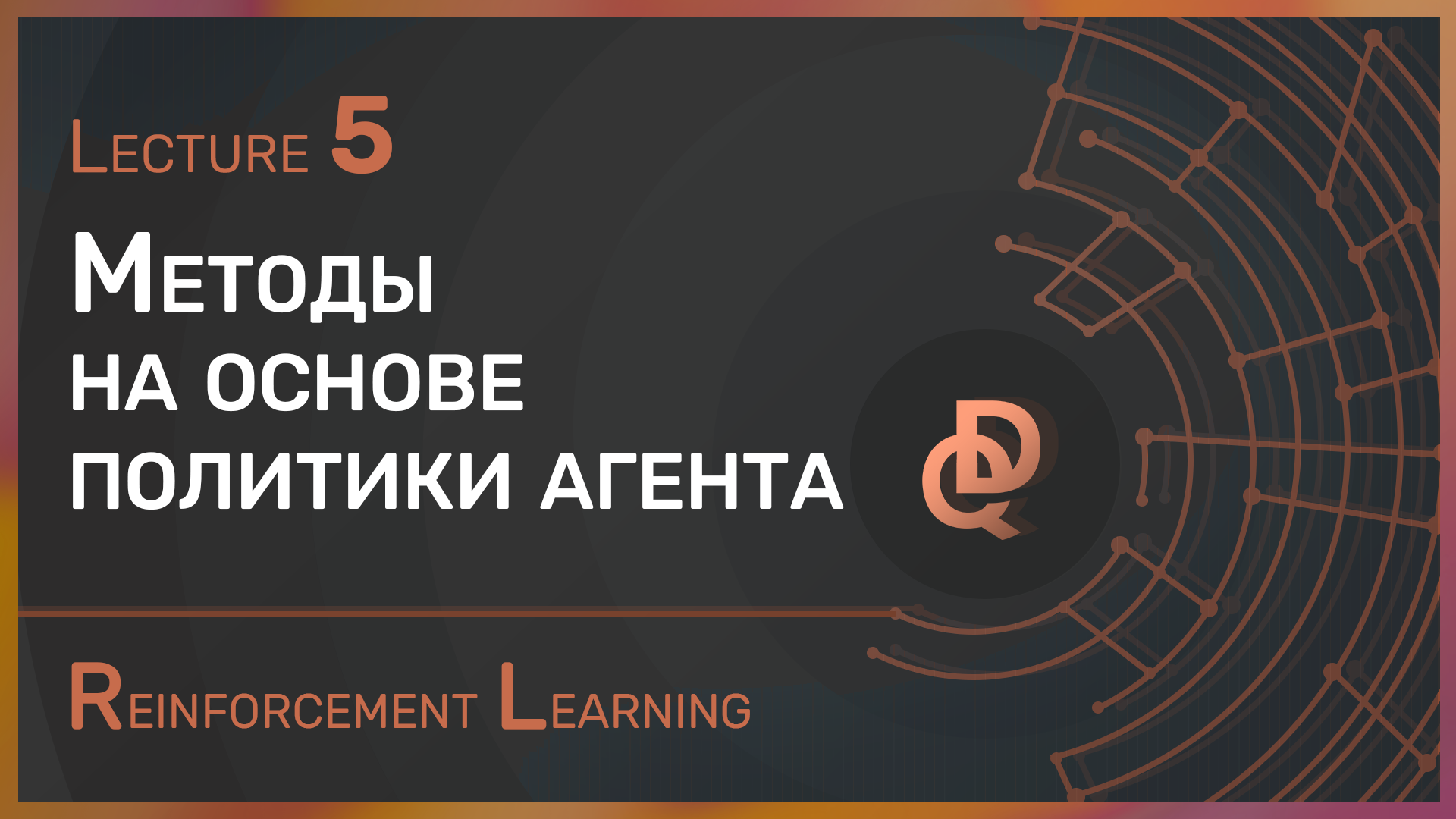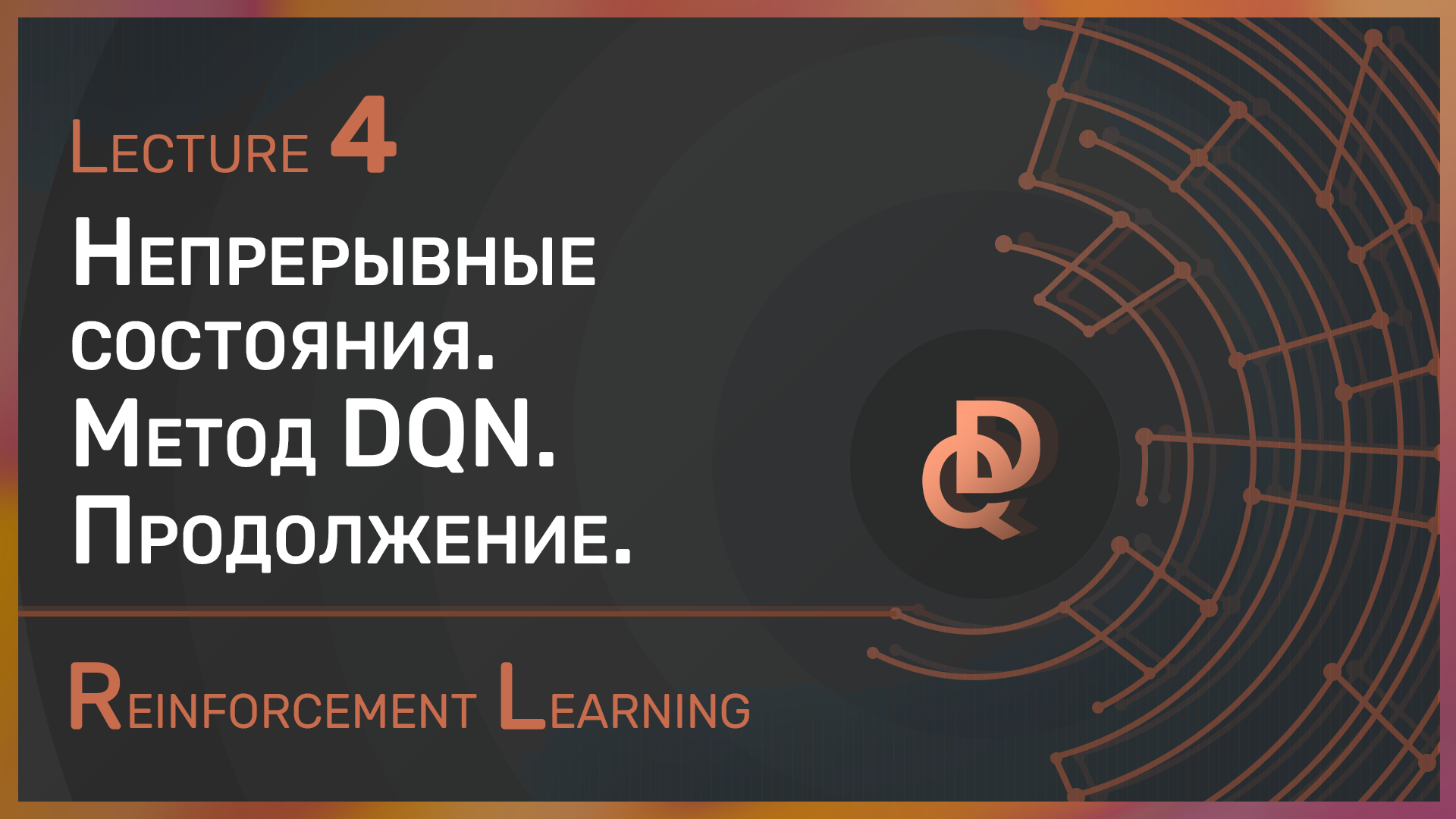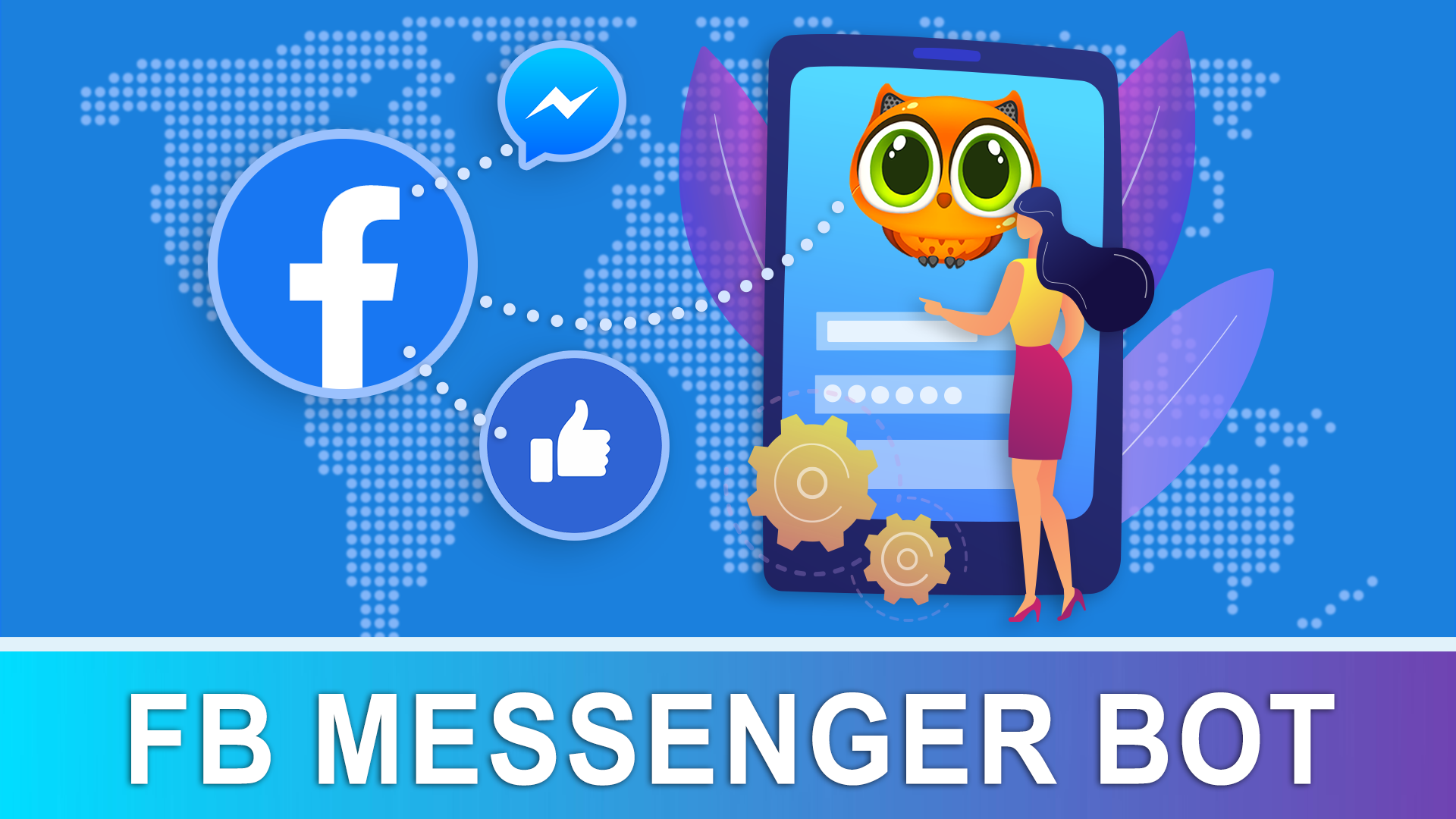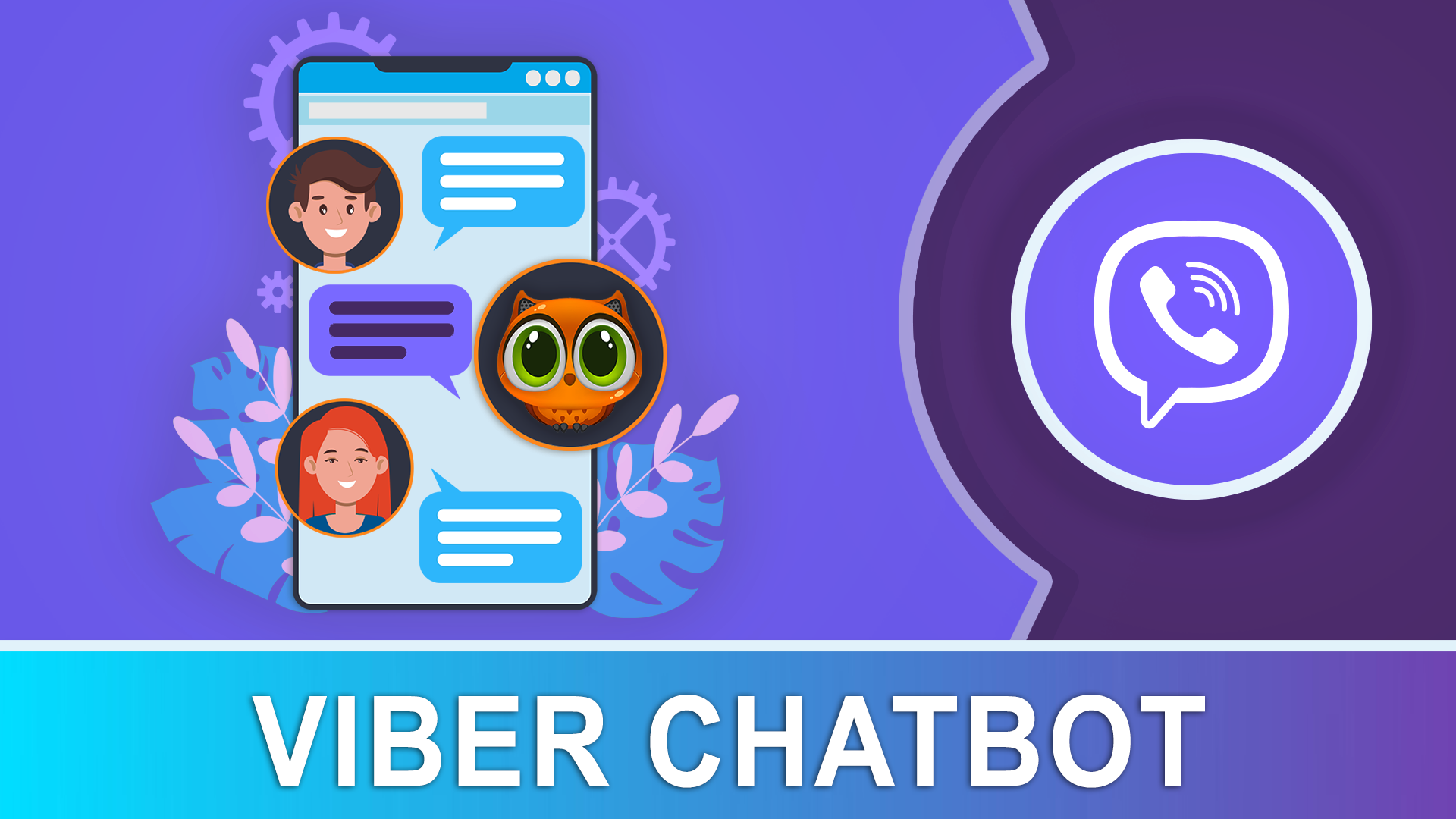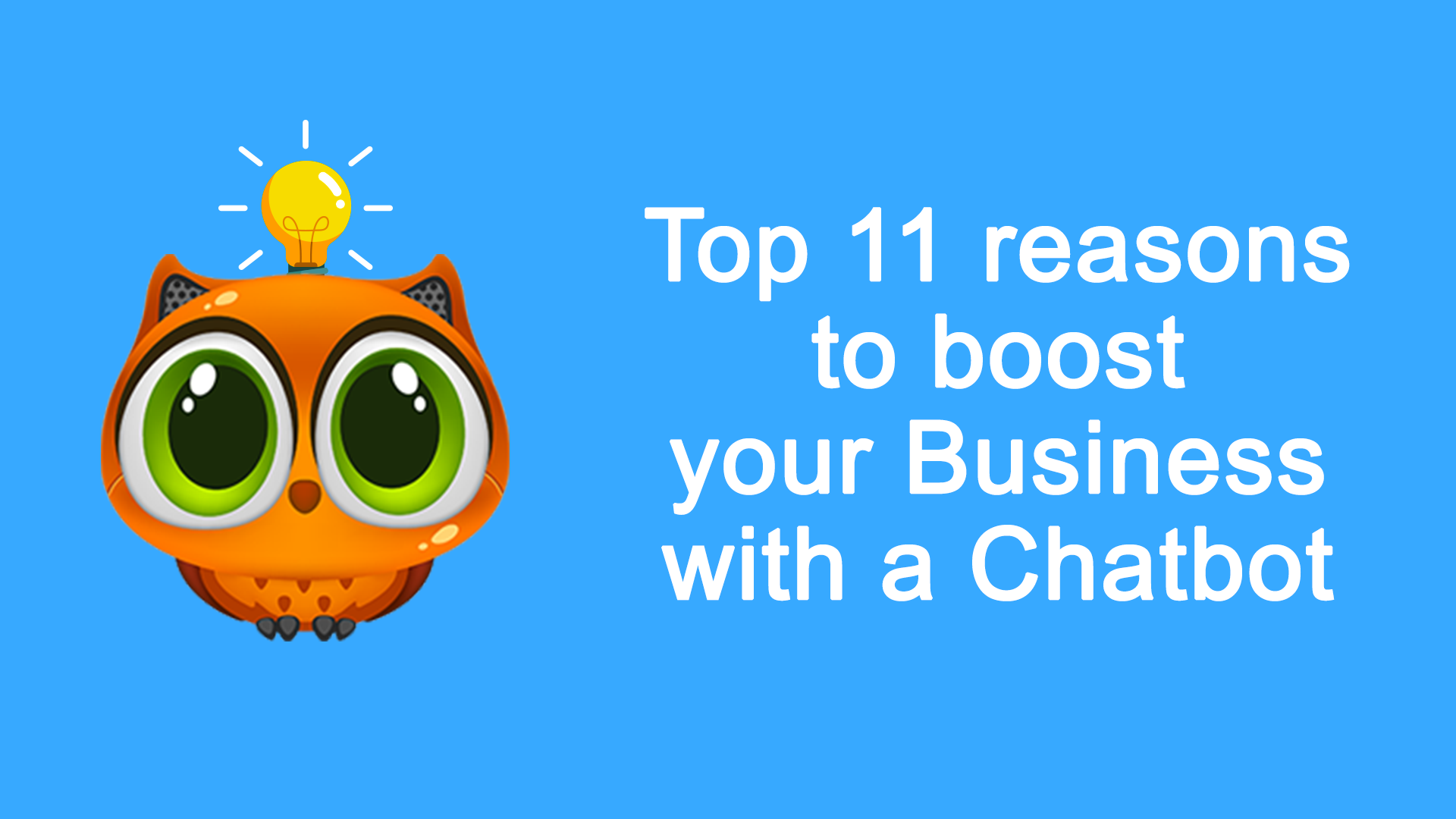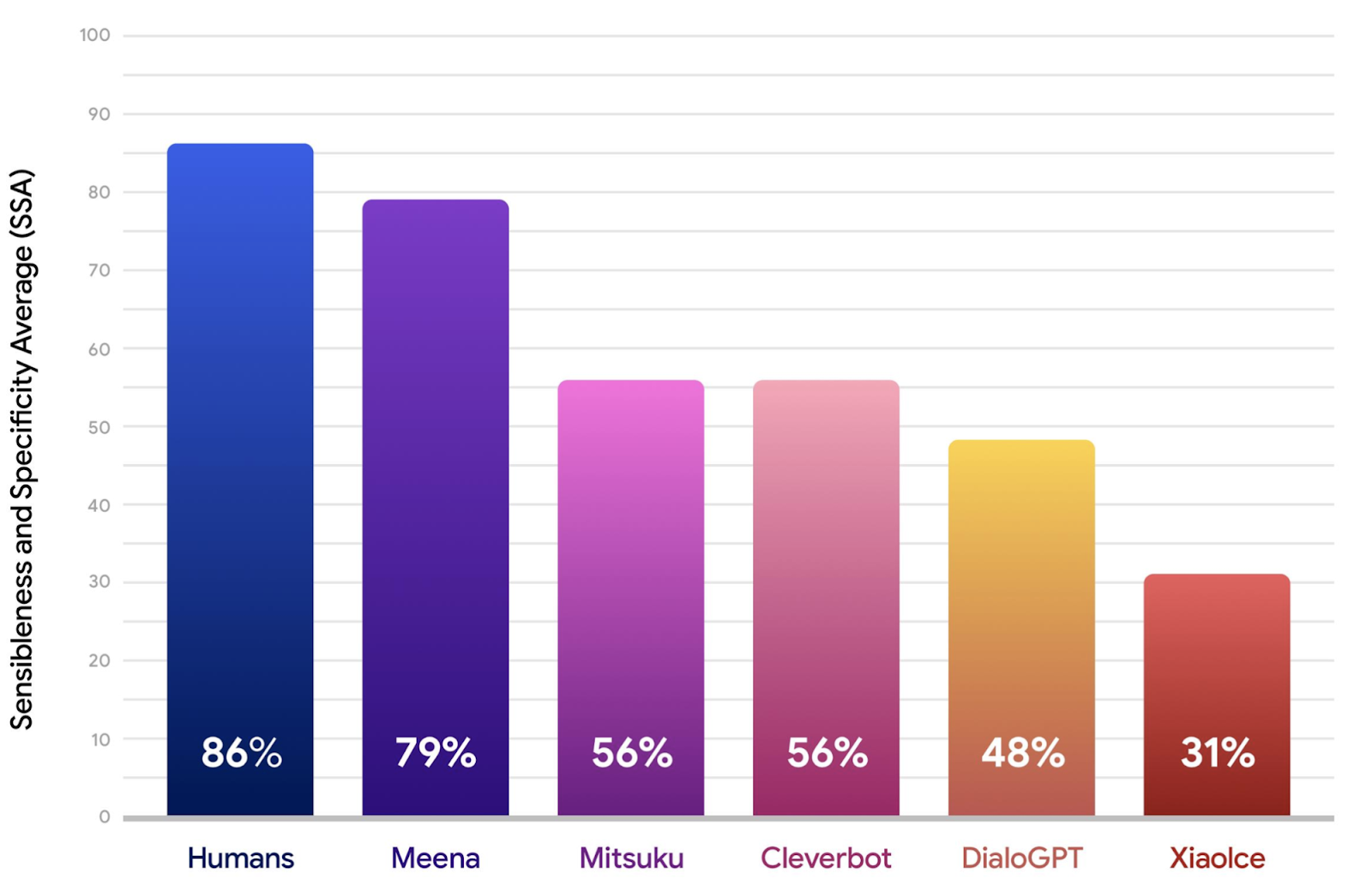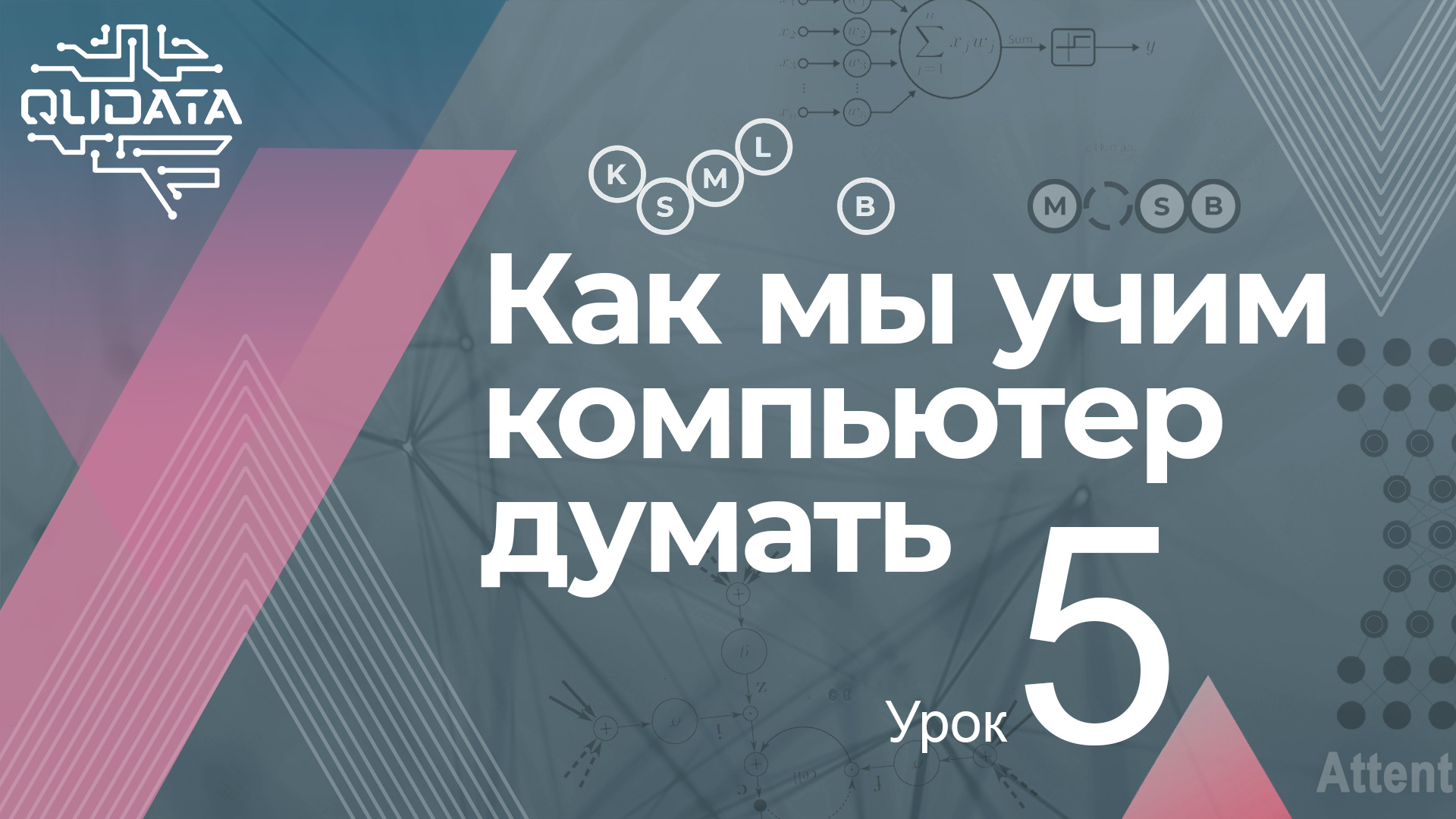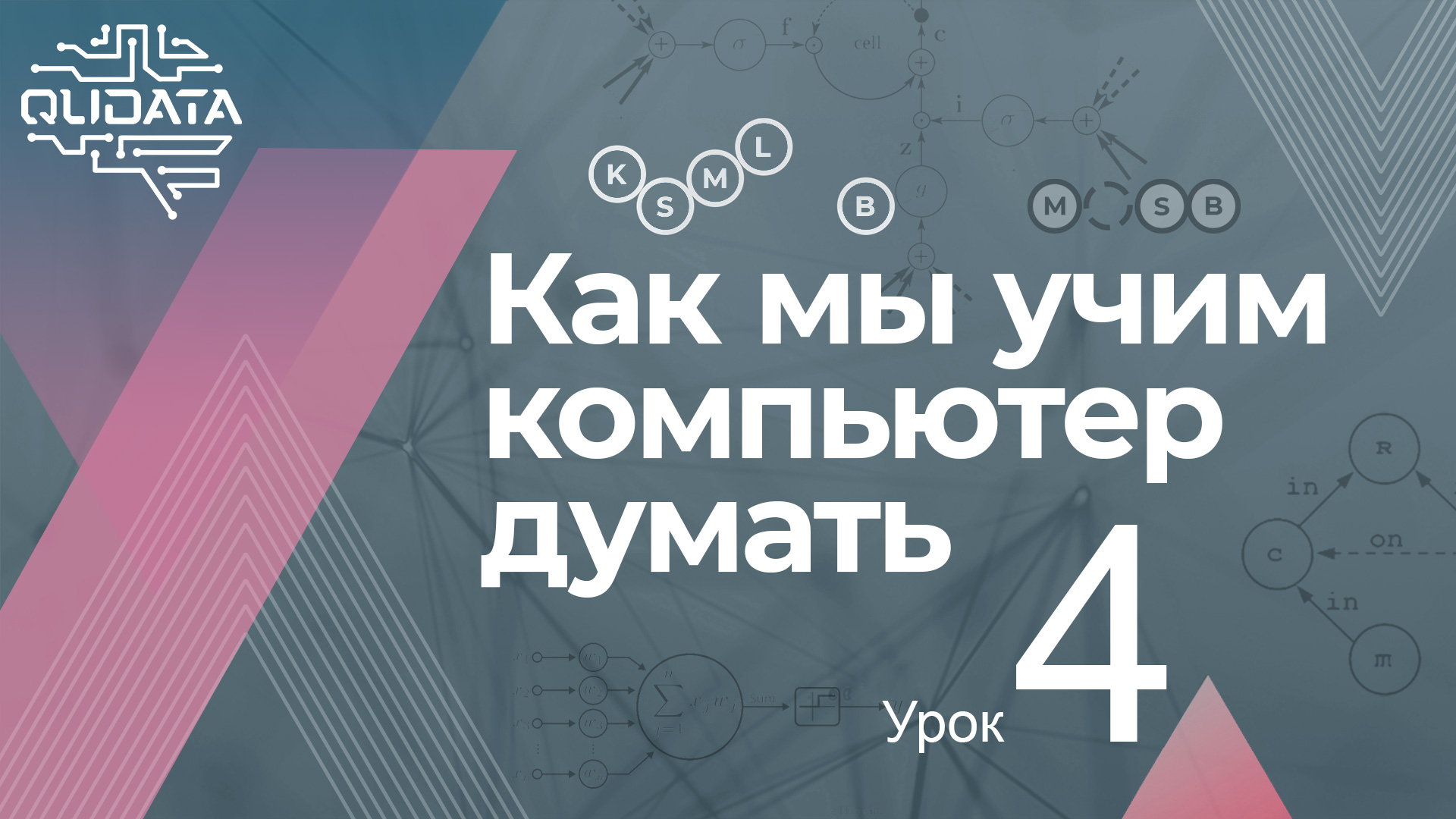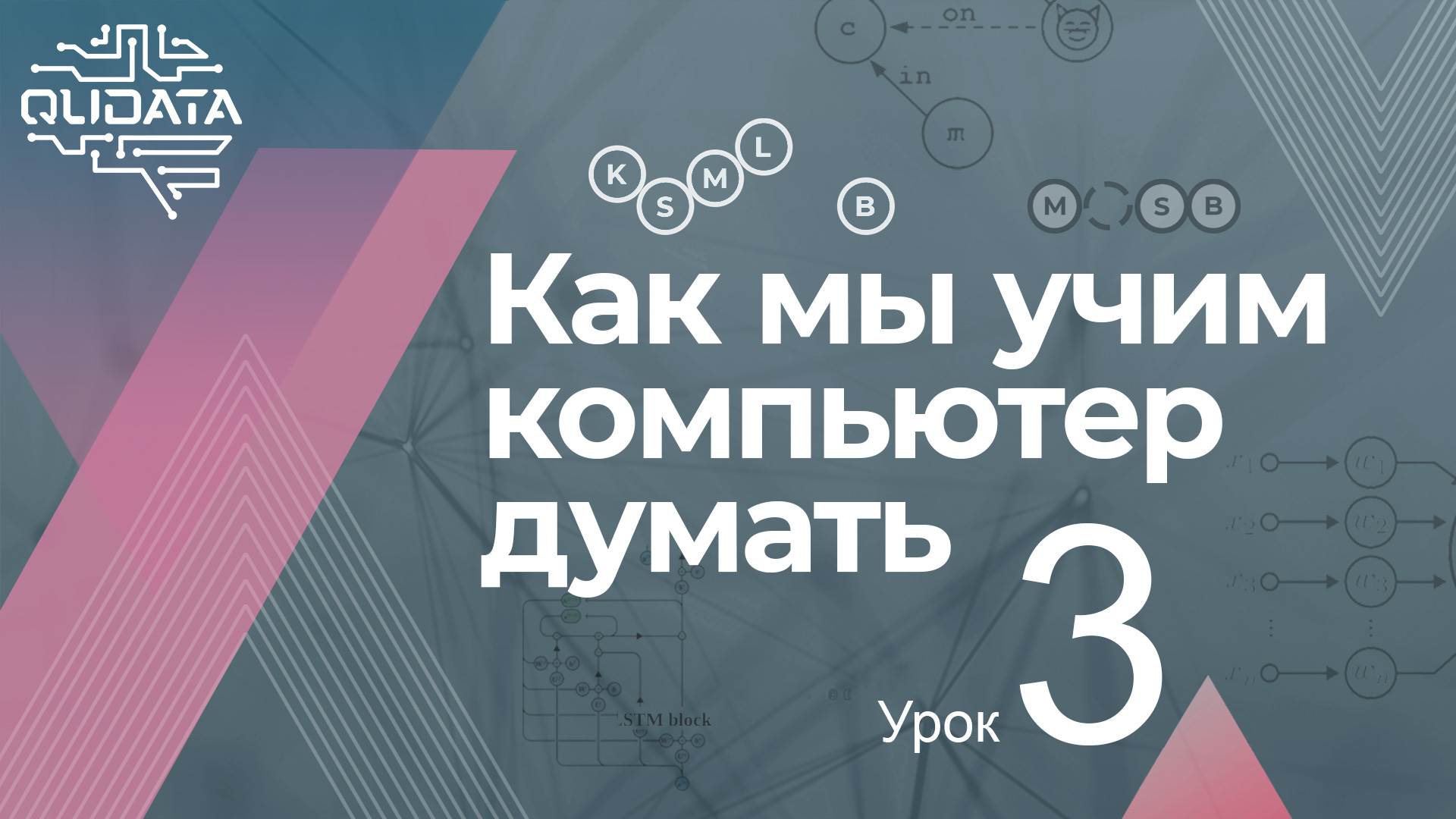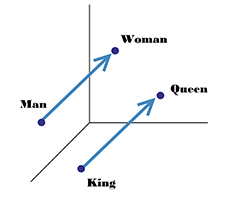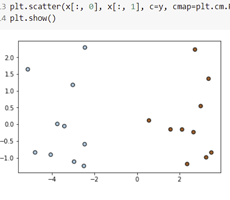In this video, we will understand a new group of methods that are based directly on the agent's policy. Let's get acquainted with the REINFORCE method, consider a combination of Actor Critic algorithms based on values similar to Policy Gradient and Q-Learning.
We continue to discuss the method of deep Q-learning (DQN), consider the software implementation of DQN, get acquainted with the Ray library.
Today, let's dive into the amazing world of neural networks and look at a deep Q-learning or DQN method that can play Atari 2600 games at the human expert level.
Consider the first working method of Q-learning, which underlies many other reinforcement learning algorithms. Also, using this method, we will solve two problems from those that were at the previous seminar.
We are starting a series of seminars on the topic of machine learning with reinforcement. Today we discuss the problem statement, basic definitions, look and study examples.
Do you want to set up a chatbot for your Facebook Messenger? Don’t know where to start?
Start with this video and learn how to connect smartbot to FB Messenger. No code - no efforts!
Take advantage of quick and easy bot implementation into messengers.
Qubot chatbot builder offers efficient solutions and endless possibilities. Engage with your audience and promote your products and services successfully.
A chatbot has many benefits and applications, but sometimes customers need a little more personal attention and sympathy that only another person is capable of. In such cases, LiveChat is just what your business may need!
LiveChat is an irreplaceable tool that carries out a real-time conversation transfer from bot to the human manager. It’s very handy for dealing with issues that are beyond chatbot capabilities, even AI, as well as building reliable relationships with customers.
Only a few clicks separate you from your customers! Integrate chatbot to WhatsApp and always stay in touch with the clients.
Set up a WhatsApp bot and boost your business effortlessly. Provide prime customer support, collect client information or gather feedback to improve your products and services. Find out your possibilities with QuBot from QuData!
With chatbot analytics and data tracking collected information becomes a powerful tool for effective decision making. It provides key metrics on smartbot performance and customer experience.
In this video QuBot chatbot builder presents its powerful Analytics and short guidance for running available tools and features.
Find out what data is collected and processed to discover patterns in consumer behavior. Learn where to look for a proper interpretation of results and grow a successful business!
In this video we are going to show you how to set up Google Sheets as convenient and reliable databases for your chatbots.
With Google Sheets you can easily edit, organize, and analyze different types of data in record time. You won’t need any additional installations! Just a few clicks and your chatbot starts to share information with Google Sheets immediately.
Enjoy helpful hints and practical tips for chatbot building. Check out the 1 minute guide and connect smart bots to Viber messenger like a pro!
With QuBot chat builder you can quickly and easily add personal bots to popular messengers and significantly increase your customer base. Reach out to your audience freely!
Have you built your own perfect chatbot but have no idea what to do next? Сheck out the video and you will learn how to quickly and easily integrate a chatbot into a WEB channel.
Installing a bot to the business site is a simple way to engage with clients, turn visitors into leads and nurture them into regulars. Qubot readily provides everyday communication and customer support for any website as well as successfully promotes products and services.
Add a chatbot to your website and the result won't keep you waiting!
Let us show you how to build a brand new chatbot from a template in only a minute. Just watch and learn!
QuBot chatbot builder allows users to create original bots via various ready-to-use templates. It takes absolutely no time or effort!
With available templates of QuBot everybody can find what they are looking for. It has never been easier to build, set up and deploy a chat bot!
Watch our video and learn how to implement your own unique bots with Telegram in a minute. No code required!
Use simple yet powerful QuBot chat builder to create and integrate chatbots with popular messengers without much time and effort.
As business schemes develop along with technology it may be hard to keep up with the latest updates on how to make your business more client-oriented, modern and make some processes automatic. Let’s talk about that. Here are top 11 reasons to use chatbots that can level up your business!
Considering trends towards improving customer experience and growing demand for bots, chatbot builder software has started to appear everywhere. Smart bot constructor is a perfect solution to create chatbots without coding skills for any business needs.
Nowadays, people would rather have a chat with a bot than take part in a personal conversation. Whether it’s to order a takeout for dinner or to find a candidate for a new job offer – people prefer to use live-chat widgets or text with chat bots instead of making phone calls or writing emails.
Only two years ago, the chatbot market was $ 2.6 billion. It is expected to quadruple by 2025. Business chatbots, artificial intelligence and conversational technologies are quite popular nowadays.
There is a wide variety of all kinds of bots for different industries. In this article, we are going to check out the most useful and popular bots, ranging from friendly chatbots for Japanese teenagers to serious intelligent e-commerce chatbots, and everything in between.
What's the difference between PyTorch and TensorFlow? Both are open source Python libraries that use graphs for numerical data calculations. Both are widely used in academic research and commerce. Both are extended by various APIs, cloud computing platforms and model repositories.
The Attention mechanism is currently found in a variety of architectures and tasks (translation, text generation, image annotation). The Attention algorithm analyzes and highlights the relationships between the elements of the input and output sequences. Known as the generalized attention mechanism, it was originally suggested for machine translation models which use recurrent networks. Attention solved the problem of long-term memory in the translation of long sentences. This approach excelled the previously overviewed recurrent neural networks based on LSTM blocks.
Let's proceed with our seminars dedicated to machine learning. Today's lecture is about dynamics. We will also touch upon the inference algorithm and take a closer look at the Merge module. We are going to create multiple models of the world, from trivial to quite peculiar, and see how original a problem solution might be.
As in previous seminars, today we are discussing the problem of building an intelligent system capable of understanding information about a limited world. The system will now also feature basic actions.
Let's move away from the box world for a while. Our AI gradually comes to understand the relations between actions (to approach, to take something, to put it somewhere), and in this space of actions and relations, we continue teaching it to build adequate models which will be plausible in our limited world.
Following our seminars on machine learning, we will first revise the previous lesson, and then look into the theoretical part. Our today's objective is to examine the relationships that describe conditionally closed cubes in the ordinary world, to discuss the concepts of closed and open world and to outline ways to go beyond this rather limited model to more realistic tasks.
In the second video of our series of seminars on teaching the computer to think, we are discussing the basic static aspects of the logical approach. We will also focus on topological aspects, leaving dimensions and distances for later.
The seminar consists of two parts. First, let's recall the mathematical logic, and then make a detailed analysis of the axiomatics of the world of cubes, which is the basic model for mathematical inference and construction of axioms.
In this course of seminars, we are going to consider a rather specific task, which is building an intelligent system able to understand the information about a limited world. By "limited", we only mean that the computer is not supposed to comprehend everything from stock reports to baseball rules straightway. It can be quite an ordinary world, as our house, its neighborhood, the world of simple human interactions.
Word2vec is a method to efficiently create embeddings developed in 2013. Apart of word-embedding, some of its concepts have also proved effective in developing recommendation engines and data interpretation, even in regards of commercial, non-language tasks. You can see that all modern NLP applications are based on Word2vec algorithms. Today we are looking into Word2Vec technology along with the methods for knowledge representation in intelligent systems.
A convolutional neural network (also CNN or ConvNet) is one of the most common deep learning algorithms. It's a class of machine learning in which a model learns to classify objects directly in images, video, audio or text.
Today we will find out what features make convolutional neural networks so useful. In the practical part, we will train them to understand geometric relations and test them.
Today's seminar is dedicated to one of the popular supervised learning methods, which is used to solve classification and regression problems. The algorithm, also known as the maximum-margin classifier method, is widely used for solving both linear and nonlinear problems.
Its main idea is to create an optimally separating hyperplane for the sampled objects.
The object recognition in image data is a popular illustration of the power of deep learning techniques.
Today, you will learn how to create a deep learning model for the MNIST handwritten digit recognition problem in Python using the Keras deep learning library.
Let's talk about how eyesight works in regards of psychology and neurophysiology.
Our special guest is Dr Leonid Savchenko, a Senior Research Associate at the Faculty of Brain Sciences, UCL Queen Square Institute of Neurology, London.
Today, we will look into the recognition methods in machine learning. We will pay attention to probabilistic methods, recall the formula for Bayes' theorem, and study the paradoxes of n-dimensional spaces. We will also review the methods for density estimation and algorithms testing.


